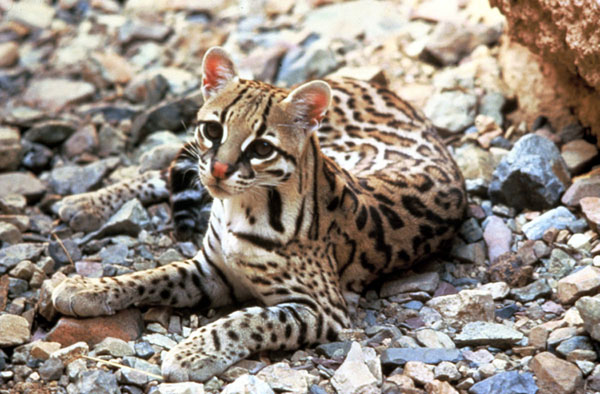- National Library Week in Los Fresnos
- Lady Falcons are Class 6A Champions
- New Beauty Clinic Opens Up in Los Fresnos
- “Houston’s Most Notable” —Los Fresnos Raised
- Earth Day 2024 coming April 6th in Los Fresnos
- Another Successful Golf Tournament for the Leo Aguilar Foundation
- Back to The Moon Again
- March 2024 Your Health Matters
- Lady Falcons in Tournament Play
- Easter Fun at Big Red’s Ranch
Groups Sue Feds to Protect Endangered Ocelots in Texas
- Updated: October 21, 2016

Conservation groups have filed suit to protect the endangered ocelot from a federal program to kill other predators such as coyotes and bobcats. Photo: TomSmiley/USFWS
by Mark Richardson
HARLINGEN, Texas – A pair of conservation groups has sued to protect endangered ocelots by blocking a federal agency’s plan to remove other predators from parts of Texas and Arizona.
The lawsuit seeks changes in a wildlife management program that uses traps and poisons to remove coyotes, bobcats, and other animals when they become a nuisance to farmers and ranchers.
Collette Adkins, an attorney for the Center for Biological Diversity, said only about 100 ocelots are left in the U.S. and the trapping program puts them in danger.
“There are lots of time-tested, non-lethal ways to prevent predation on livestock, and we would hope that in areas where you’ve got a risk of killing endangered species, that if those wildlife services would turn to methods that wouldn’t put ocelots at risk,” she said.
Adkins said the lawsuit, filed by her group and the Animal Welfare Institute, seeks to force the USDA’s Animal Plant and Health Inspection Service and the U.S. Fish and Wildlife Service to use non-lethal methods to control predators in ocelot habitats in Texas and Arizona. Both federal agencies declined to comment on the lawsuit.
In July, the Fish and Wildlife Service released a long-term recovery plan designed to increase the ocelot population in the U.S. to 2,000 cats over the next century. Adkins said there are larger numbers of ocelots in Mexico and Central America, but that much of their U.S. habitat has been lost to development.
“Their range has really shrunk from what their historic range was because of habitat loss and because of past predator-control programs and exploitation by humans, leaving ocelots in just South Texas and southern Arizona,” she explained.
Adkins added that federal officials performed a study in 2010 to map the ocelot’s habitat, but have failed to use that information when setting traps for other animals. She said, so far, no ocelots have been killed in the traps and she wants to keep it that way.





